Risikoverlagerung in Finanzmärkten und nachhaltige Finanzierung
Erleichtern Finanzinstitute nachhaltige Finanzierungen? Diese Forschungsgruppe untersucht die Anreize der Kreditgeber zur Risikoverlagerung, ihre Entscheidungen bei der Unterstützung nachhaltiger Unternehmen und wie sich nachhaltige Finanz- und Rechtsinnovationen auf Unternehmen und Haushalte auswirken.
Forschungscluster
Finanzresilienz und RegulierungIhr Kontakt

- Abteilung Finanzmärkte
Referierte Publikationen
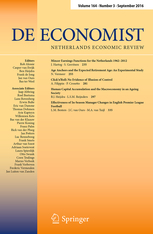
Legal Insider Trading and Stock Market Liquidity
in: De Economist, Nr. 1, 2016
Abstract
This paper assesses the impact of legal trades by corporate insiders on the liquidity of the firm’s stock. For this purpose, we analyze two liquidity measures and one information asymmetry measure. The analysis allows us to study as well the effect of a change in insider trading regulation, namely the implementation of the Market Abuse Directive (European Union Directive 2003/6/EC) on the Dutch stock market. The first set of results shows that, in accordance with theories of asymmetric information, the intensity of legal insider trading in a given company is positively related to the bid-ask spread and to the information asymmetry measure. We also find that the Market Abuse Directive did not reduce significantly this effect. Secondly, analyzing liquidity and information asymmetry around the days of legal insider trading, we find that small and large capitalization stocks see their bid-ask spread and the permanent price impact increase when insiders trade. For mid-cap stocks, only the permanent price impact increases. Finally, we could not detect a significant improvement of these results following the change in regulation.
Arbeitspapiere
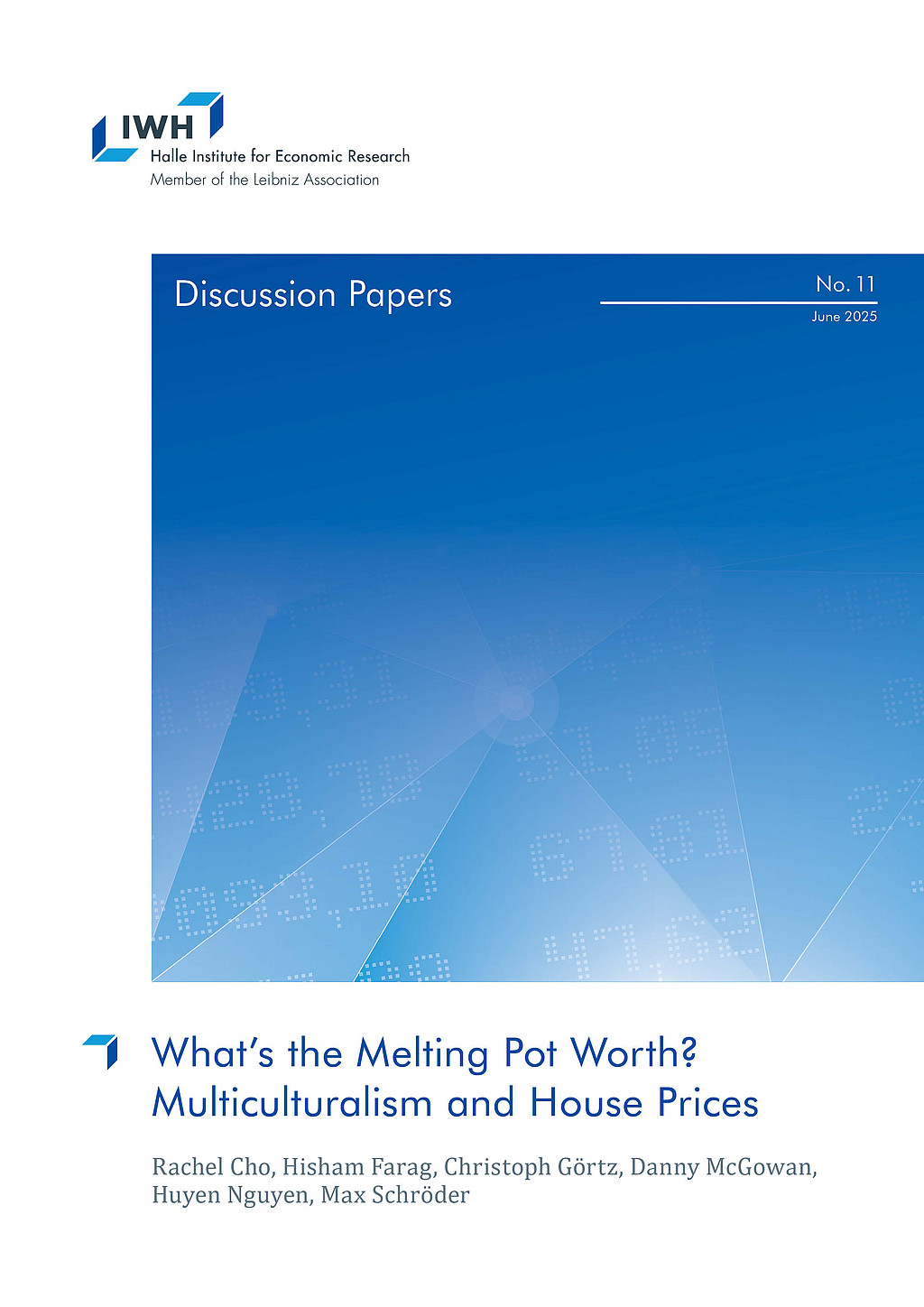
What’s the Melting Pot Worth? Multiculturalism and House Prices
in: IWH Discussion Papers, Nr. 11, 2025
Abstract
<p>Is there a multicultural neighborhood price premium? We exploit plausibly exogenous variation in British colonization patterns in Northern Ireland during the early 1600s which created neighborhoods of varying religious composition that persists until today. These religious groups are culturally distinct, but are observationally equivalent ethnically and socioeconomically. A standard deviation increase neighborhood-level multiculturalism raises house prices by 9.6%. Multiculturalism raises property prices by increasing asset liquidity and housing demand as a wider spectrum of society demand houses in these areas. The findings and mechanism contrast sharply with prior evidence showing negative relationships due to homophily, social networks, and identification challenges.</p>
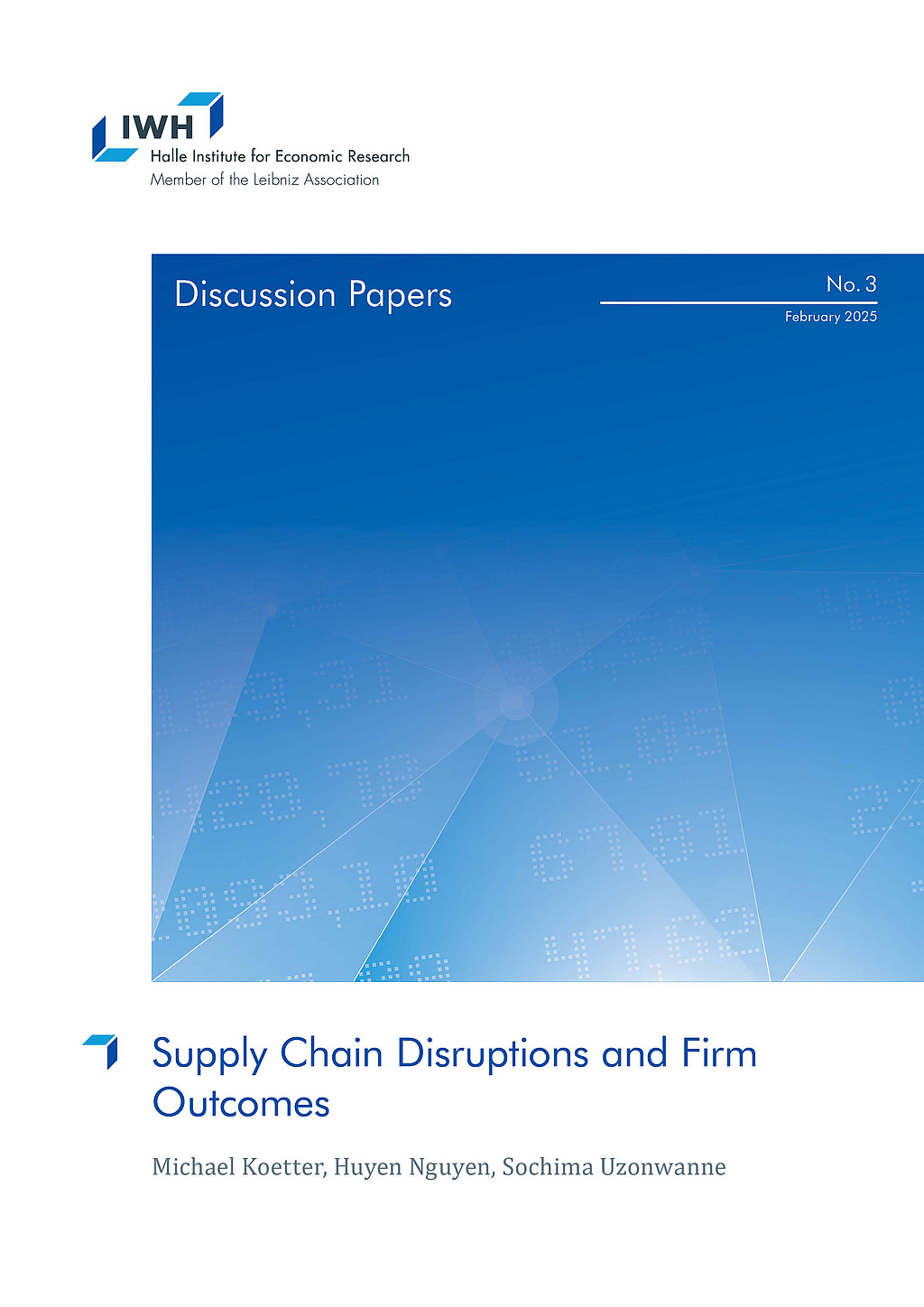
Supply Chain Disruptions and Firm Outcomes
in: IWH Discussion Papers, Nr. 3, 2025
Abstract
<p>This paper examines how firms’ exposure to supply chain disruptions (SCD) affects firm outcomes in the European Union (EU). Exploiting heterogeneous responses to workplace closures imposed by sourcing countries during the pandemic as a shock to SCD, we provide empirical evidence that firms in industries relying more heavily on foreign inputs experience a significant decline in sales compared to other firms. We document that external finance, particularly bank financing, plays a critical role in mitigating the effects of SCD. Furthermore, we highlight the unique importance of bank loans for small and solvent firms. Our findings also indicate that highly diversified firms and those sourcing inputs from less distant partners are less vulnerable to SCD.</p>
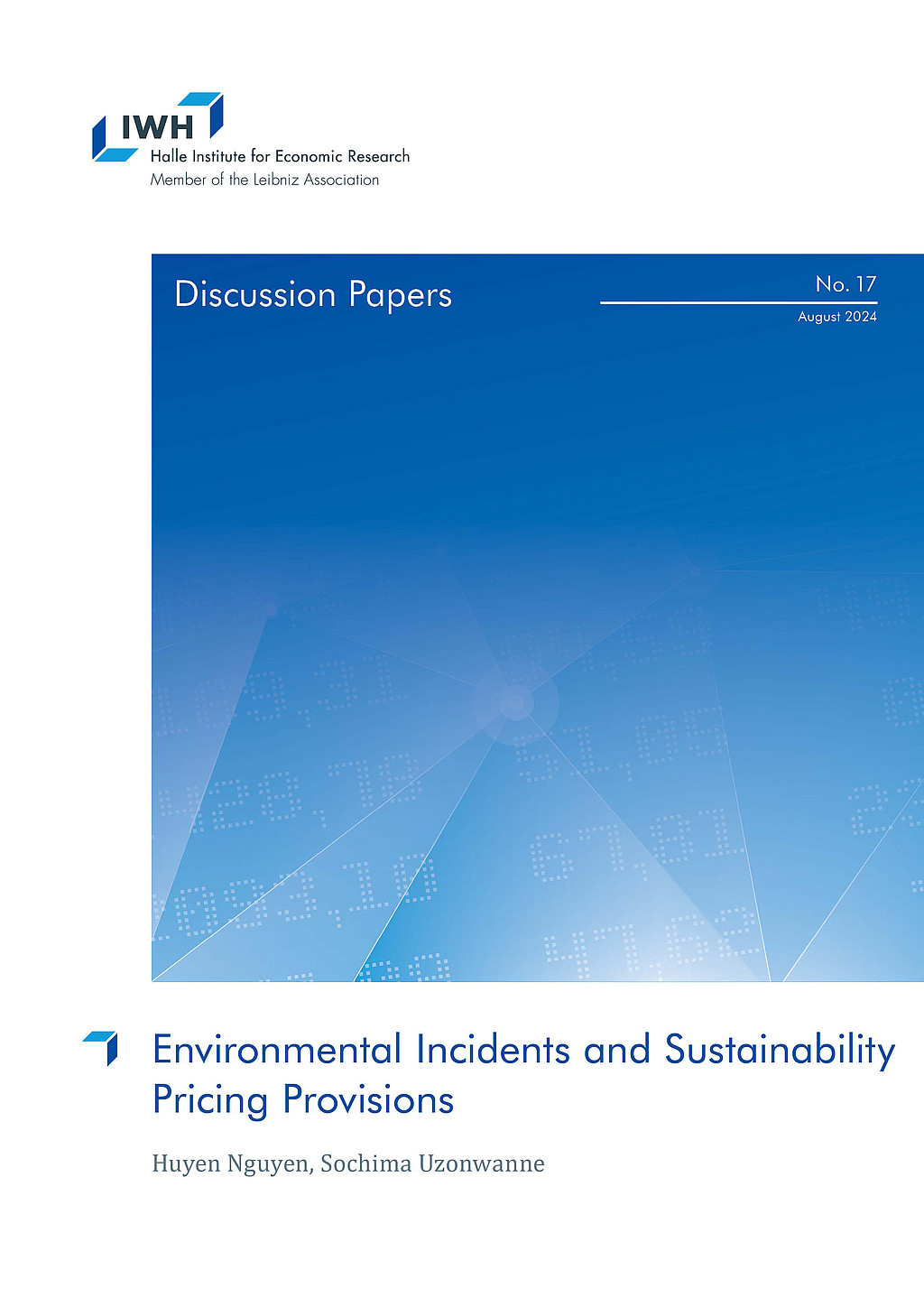
Environmental Incidents and Sustainability Pricing
in: IWH Discussion Papers, Nr. 17, 2024
Abstract
<p>We investigate whether lenders employ sustainability pricing provisions to manage borrowers’ environmental risk. Using unexpected negative environmental incidents of borrowers as exogenous shocks that reveal information on environmental risk, we find that lenders manage borrowers’ environmental risk by conventional tools such as imposing higher interest rates, utilizing financial and net worth covenants, showing reluctance to refinance, and demanding increased collateral. In contrast, the inclusion of sustainability pricing provisions in loan agreements for high environmental risk borrowers is reduced by 11 percentage points. Our study suggests that sustainability pricing provisions may not primarily serve as risk management tools but rather as instruments to attract demand from institutional investors and facilitate secondary market transactions.</p>
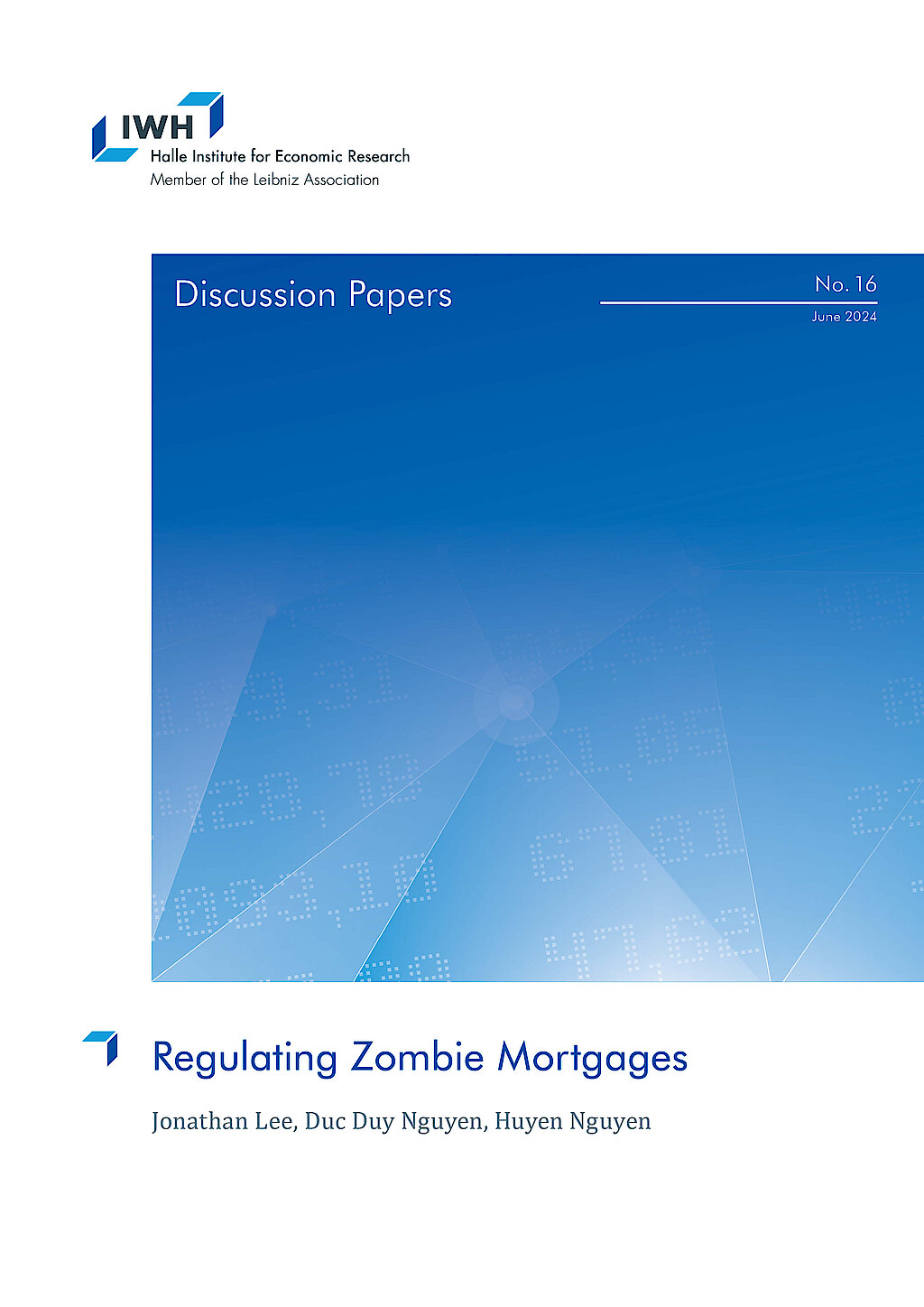
Regulating Zombie Mortgages
in: IWH Discussion Papers, Nr. 16, 2024
Abstract
Using the adoption of Zombie Property Law (ZL) across several US states, we show that increased lender accountability in the foreclosure process affects mortgage lending decisions and standards. Difference-in-differences estimations using a state border design show that ZL incentivizes lenders to screen mortgage applications more carefully: they deny more applications and impose higher interest rates on originated loans, especially risky loans. In turn, these loans exhibit higher ex-post performance. ZL also affects lender behavior after borrowers become distressed, causing them to strategically keep delinquent mortgages alive. Our findings inform the debate on policy responses to foreclosure crises.
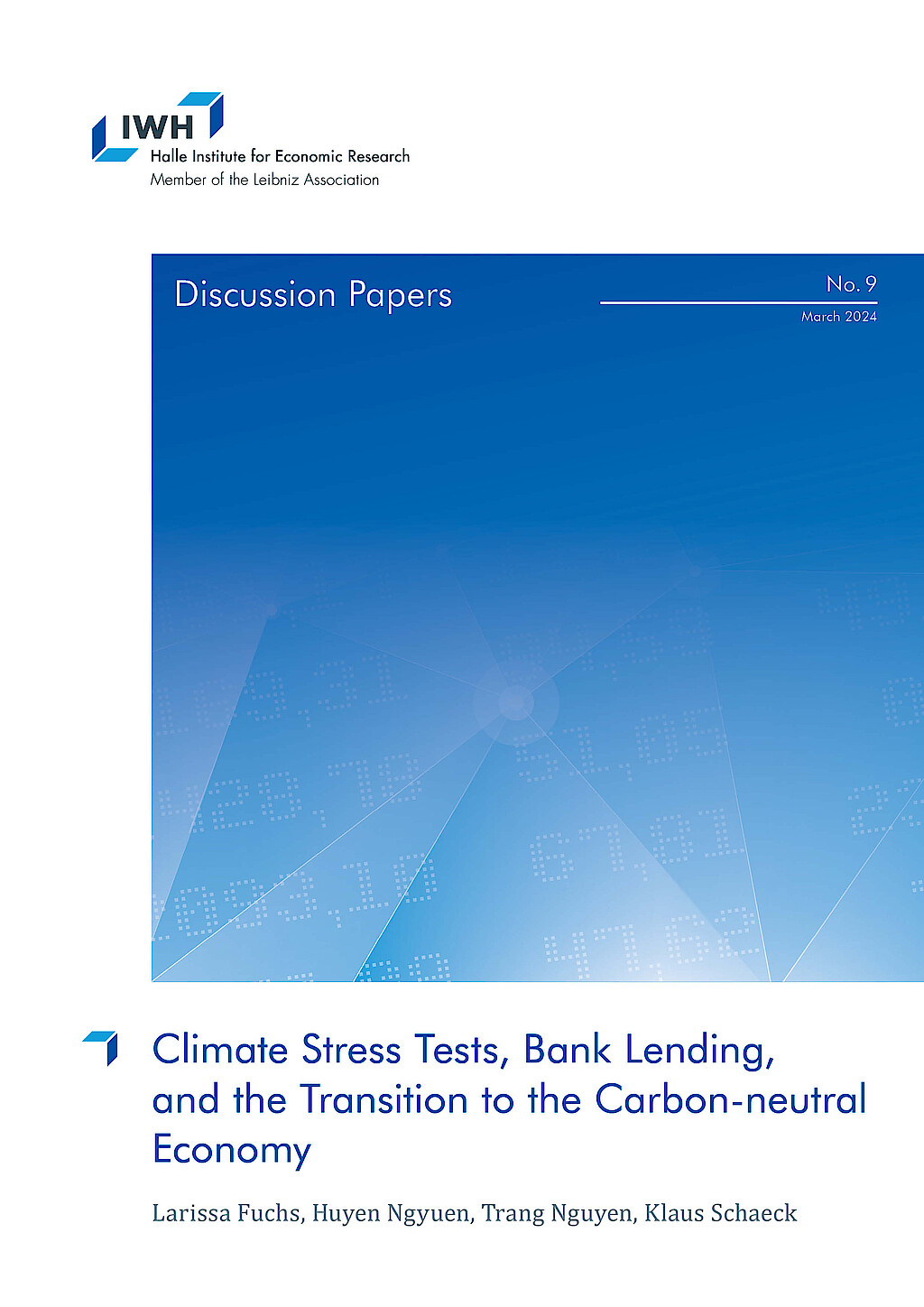
Climate Stress Tests, Bank Lending, and the Transition to the Carbon-neutral Economy
in: IWH Discussion Papers, Nr. 9, 2024
Abstract
We ask if bank supervisors’ efforts to combat climate change affect banks’ lending and their borrowers’ transition to the carbon-neutral economy. Combining information from the French supervisory agency’s climate pilot exercise with borrowers’ emission data, we first show that banks that participate in the exercise increase lending to high-carbon emitters but simultaneously charge higher interest rates. Second, participating banks collect new information about climate risks, and boost lending for green purposes. Third, receiving credit from a participating bank facilitates borrowers’ efforts to improve environmental performance. Our findings establish a hitherto undocumented link between banking supervision and the transition to net-zero.





